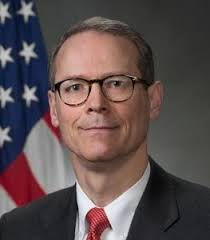Announcing the Results of the 2016 Bobby R. Inman Award Competition (for student research and writing on intelligence)
UT-Austin’s Intelligence Studies Project has announced the winners of the 2016 “Bobby R. Inman Award” competition for student research and writing on intelligence. Links to the three papers are available on ISP's site here.
Published by The Lawfare Institute
in Cooperation With

UT-Austin’s Intelligence Studies Project has announced the winners of the 2016 “Bobby R. Inman Award” competition for student research and writing on intelligence. Links to the three papers are available on ISP's site here.
- The recipient of this year’s award is Quentin Buckholz, a Masters of International Affairs candidate at Columbia University's School of International and Public Affairs. His paper—The 1980's War Scare: Misperceptions, Mistaken Beliefs, and Missed Signals in US-Soviet Relations—assesses how the Soviet Union came to believe in the threat of a nuclear first strike by the United States in the early 1980s, and how US intelligence misinterpreted or dismissed that fear.
- The graduate semifinalist is Daniel Severson, a recent J.D. and M.P.P. graduate of Harvard University. In his paper, National Security Reporting Requirements: Managing Tension Between Secrecy and Accountability, Severson explores the potential benefits and limitations of reporting requirements mandating disclosure to Congress of the legal rationale underlying certain sensitive intelligence activities.
- James "Jake" Barnett, a recent graduate of UT-Austin is the undergraduate semifinalist. In When Culture Eats Strategy: Examining the Phoenix/Phung Hoang Bureaucracy in the Vietnam conflict, Barnett uses statistical methods to assess the effectiveness of (and accountability for) US counterinsurgency programs during the Vietnam conflict.
Over 150 high-quality papers from graduate and undergraduate students at dozens of U.S. universities and colleges were evaluated on their academic rigor, clear presentation, creativity, and the potential to contribute positively to the U.S. intelligence community. Again, you can access all three paper here.
The Intelligence Studies Project was established at the University of Texas at Austin in 2013 as a joint venture of the Robert S. Strauss Center for International Security and Law and the William P. Clements, Jr. Center for National Security. The Project’s mission is to improve understanding of intelligence activities and institutions through research, courses, and public events, bringing intelligence practitioners together with scholars, students, and the public.
The Inman Award recognizes more than six decades of distinguished public service by Bobby R. Inman, Admiral, U.S. Navy (Ret.). Admiral Inman served in multiple leadership positions in the U.S. military, intelligence community, private industry, and the University of Texas. His previous intelligence posts include Director of Naval Intelligence, Vice-Director of the Defense Intelligence Agency, Director of the National Security Agency, and Deputy Director of Central Intelligence. He continues to serve as a teacher and mentor to students, faculty members, and current government officials while occupying the Lyndon B. Johnson Centennial Chair in National Policy at the LBJ School of Public Affairs.



-(1).jpeg?sfvrsn=143eb65_5)
.jpg?sfvrsn=d5e57b75_5)

